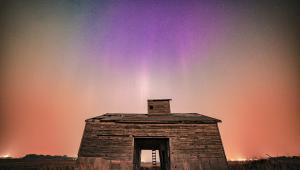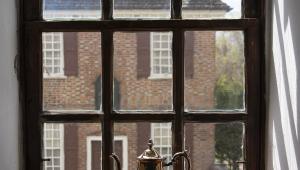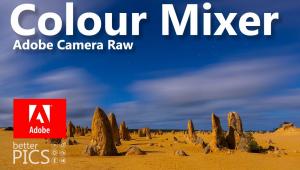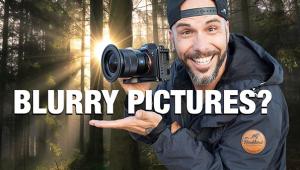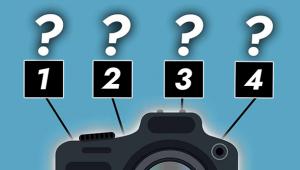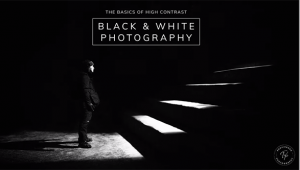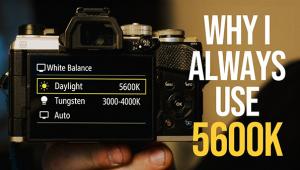Voigtlnder’s VSL 43; A New Entry-Level Film SLR Page 2
Get Those Extra Optics
It has to be said, too, that finding extra prime lenses (preferably in K-mount)
is a good idea. The zoom that is supplied with the camera does not flatter it.
Yes, it enables you to get started immediately, and if you take the trouble
to put the camera on a tripod and shoot at f/8 or f/11, the results can be surprisingly
good. At full aperture the performance is less than stellar, and unless you
use a reasonably fast film (at least ISO 400) the small maximum apertures of
the standard zoom mean that you run the risk of reduced sharpness as a result
of camera shake in anything other than bright sun. Remember: f/3.5 is 2/3 stop
slower than f/2.8 and f/4.8 is only 1/2 stop faster than f/5.6.
Focusing is precise, thanks to a microprism collar around a horizontally split
rangefinder prism, and the standard lens goes down to a 0.4 meter/17"
"Macro" mode where the quality isn't brilliant, but is better
than not being able to focus close. The screen is satisfactorily bright, as
it has to be with such a slow standard lens. The filter fitting on the standard
zoom is a handy 52mm.
The shutter release is threaded for a proper, God-fearing, PC-tapered shutter
release--no "dedicated" and overpriced electronic releases
here--and there is a 1/4" tripod socket in the bottom. The only flash
sync is via the hot shoe, though: no PC nipple, but these are available from
third parties via hot-shoe adapters. Back opening is via the usual pull-up rewind
crank and there is a window in the back for checking what film (if any) is loaded.
Batteries are 2x LR44/SR44.
There is an all-electronic self-timer: press the button at 10 o'clock
on the lens mount (seen from the front) and there's about a 10-second
non-cancelable delay. The button flashes prettily in red during the countdown.
There is no manual stop-down (depth of field preview).
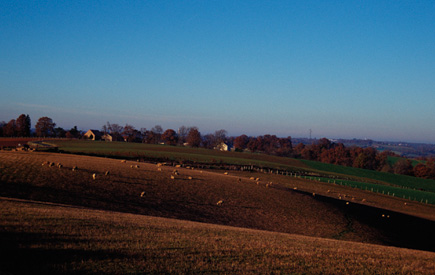 |
|
|
The Local Chatter
Inevitably, a lot of snobbism has surrounded the introduction of this camera,
with many complaining that it cheapens the Voigtländer brand. Nonsense.
Go back 50 or more years, when Voigtländer was in its heyday, and there
were quite a lot of rather basic cameras under the Voigtländer name, coexisting
quite happily with the immortal Prominent and the original
APO-Lanthars; and let us not forget that Zeiss themselves used to sell box cameras
of far more pedestrian specification than the VSL 43.
Certainly, we'd rather use this new Voigtländer than any box camera
or indeed than most of the fixed-lens, leaf-shutter, entry-level Voigtländers
of the 1950s. Plastic? Yes, but that is probably superior to cast pot metal
and stamped thin-gauge sheet. It won't outlast a Leica, or even a '58
Voigtländer Vitrona, but we would be surprised if any users of this camera
were to expose the scores or more likely hundreds of rolls of film that would
be required to wear it out. For that matter, the shutter is a lot more reliable
and accurate than on most elderly used cameras (such as our Pentax SVs from
the '60s) and of course it has both through-lens metering and Aperture-Priority
automation.
A Good Way To Learn?
The great thing about learning (or re-learning) photography with a film-based
camera like this is that the pictures can't be deleted: you can return
to your successes, as well as your failures, for days, weeks, months, and years
afterward--decades, even--and re-assess them in the light of your
growing knowledge, experience, and wisdom. This is why many people reckon that
this is the best way to start to learn about photography.
We're not totally convinced about that. We'd say that an inexpensive
digicam is best for the rank beginner. Switch to film once you have acquired
an eye for a picture; when you want to take more control over focus, exposure,
and depth of field; and when you understand how film can deliver significantly
better quality than the vast majority of digicams. Certainly, something like
the VSL 43 is a far better learning tool, once you understand the basics, than
anything automatic.
Sure, the VSL 43 is an entry-level camera; so learn "real" (film-based)
photography with it, for what is today very little money, and once you have
learned this arcane but wondrous art, buy something better. Before you do, though,
buy at least one more decent lens: the one supplied really isn't very
impressive, but then, the body alone would be a bargain at $225 without a lens.
With a good lens, you may be amazed at the quality of the results the VSL 43
can deliver. When you've learned all you can, and progressed to a pro-level
camera, pass the VSL 43 on. Choose the recipient carefully, as the likelihood
is that you will be making a friend for life.
The VSL 43 was supplied for test by the official and apparently only importers:
The Photo Village, Inc., 1133 Broadway, Ste. 824, New York, NY 10010; (212)
989-1252; www.photovillage.com.
- Log in or register to post comments





